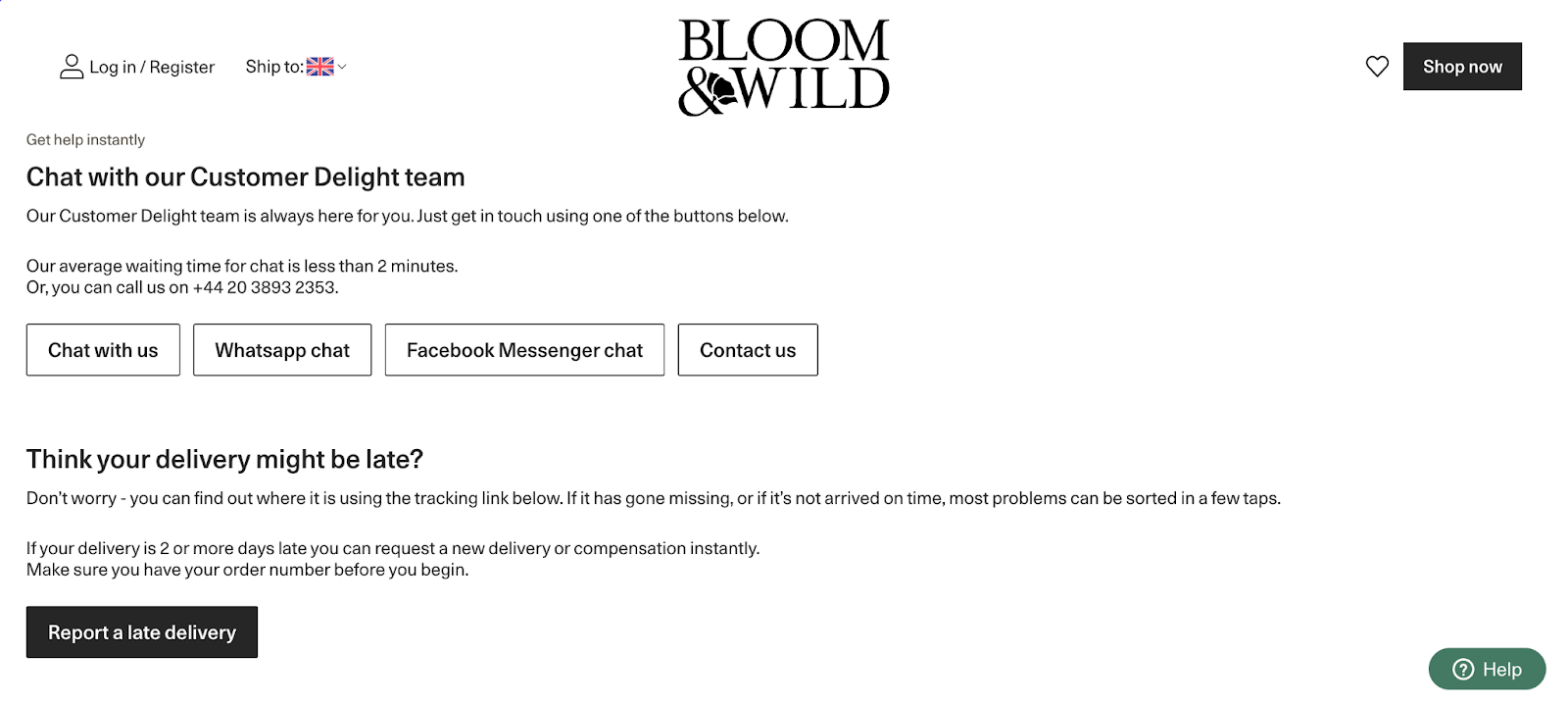Trust has always been a crucial currency for anyone running an ecommerce website. Every time a customer visits a new online store, they make their own conclusion about the perceived risk of shopping there. And this makes sense, since online transactions involve a lot of sensitive data like credit card numbers and contact details.
As a result, it’s essential to build trust and convince visitors that your online store is safe to shop. After all, consumers are becoming more discerning when it comes to where they choose to make their online purchases.
In this article, we’ll explore everything an ecommerce business needs to know about customer trust.
Let’s get started!
What is consumer trust in ecommerce and why is it important?
Customer trust refers to the confidence that customers place in an online business or platform when engaging in transactions or interactions.
Trust is built on the foundation of consistent and positive experiences, where customers believe that the ecommerce business is reliable, transparent, and committed to meeting their expectations.
An ecommerce website that has a well-built online shopping experience and lots of satisfied customers won’t face challenges with customer trust.
Now let’s see why building trust is paramount for convincing people to shop your online store.
1. More loyal customers
Trust is the bedrock of customer loyalty. When consumers trust an ecommerce site, they’re more likely to become loyal customers.
The confidence instilled by positive experiences and transparent business practices encourages customers to return for future purchases.
Loyalty, once earned through trust, transforms one-time buyers into long-term brand advocates.
2. Increased customer confidence
Customer concerns, ranging from product quality to online security, can act as barriers to making a purchase. By actively building trust, you address these apprehensions head-on.
A transparent and reliable brand instills confidence in potential customers, alleviating their concerns and creating an environment conducive to successful transactions.
3. Positive word-of-mouth
Trust is a catalyst for positive word-of-mouth marketing. Satisfied customers are not only likely to return to your ecommerce business but also to share their positive experiences with friends, family, and their online communities.
These organic endorsements can significantly enhance your brand’s reputation, drawing in new customers and expanding your reach through the powerful network of word-of-mouth recommendations.
3 main concerns online shoppers have
Customers tend to worry about these three issues the most when shopping online.
1. Privacy and security concerns
Privacy and security concerns play a pivotal role in fostering customer trust in ecommerce, as individuals entrust sensitive personal and financial information to online platforms.
To ensure these data are protected against vulnerabilities, particularly those related to PHP, which is commonly used in e-commerce platforms, using a PHP security scanner is essential. This tool helps identify and rectify security weaknesses before they can be exploited by malicious parties, significantly enhancing site security and providing continuous security validation.
Many online shoppers have seen news about customer data breaches through ecommerce stores. And many of them have been affected by these issues themselves! Stories like these underscore the importance of reassuring prospective customers about the security measures you have in place to protect their data.
2. Transparency and authenticity
Transparency and authenticity are foundational elements in building customer trust in ecommerce, as they empower consumers with clear information about products, pricing, and business practices.
By openly communicating policies, including return procedures and terms of service, ecommerce platforms can clearly establish customer expectations and thereby reduce both uncertainty and potential disputes.
Authenticity in product representation, through genuine online reviews, high-quality images, and accurate descriptions, not only enhances customer confidence but also contributes to the credibility of your online store, fostering long-term trust and loyalty. Websites that sell low-quality or counterfeit products will never build up brand trust with their customers.
3. Customer service and support
Exceptional customer service is instrumental in cultivating trust. Customers want to know that if they do have any issues with their purchases, the online store they ordered from will have a responsive and supportive system for addressing those issues.
A quick and helpful customer service team not only efficiently resolves problems but also showcases a dedicated commitment to customer satisfaction, forging a positive relationship with users.
Make sure that your contact page is easy to find and that new customers can see that they’ll be able to easily handle issues like returns and refunds.
7 tips to build customer trust in an online store
Building trust in ecommerce websites involves several different tactics, from displaying customer reviews and social proof to using payment security seals.
Let’s take a look at 7 actionable strategies.
1. Provide secure, transparent transactions
As we’ve mentioned, online shoppers feel concerned about the security of their personal information. They want to know that they’re about to make a purchase from a legitimate business rather than a scammer.
Online stores should address this barrier to customer trust by implementing secure payment gateways, ensuring their SSL certificate is up to date, and clearly communicating the transaction process by showing a progress bar.
If your site has an up-to-date SSL certificate, users will see a padlock to the left of the website name.

Also, be sure to add widely accepted payment methods such as Visa, Paypal, and Mastercard. Check out how Asos displays their accepted payment methods below.

2. Collect and display 5-star reviews
Reviews and customer testimonials are important ways for ecommerce sites to build trust. When a potential customer sees that other people have had positive experiences with a brand, it sends subconscious trust signals.
Here’s an example of how Varnish & Vine displays customer testimonials on their homepage.

Customers feel more secure when social proof is prominently displayed on product pages. Learn how to set up social proof elements here.
3. Add trust signals
Highlighting your website security features can help you boost consumer trust and improve your ecommerce checkout rate.
Implement SSL certificates so that customer’s browsers won’t throw up any warnings, and use trust seals, accepted payment security certificates, and money back guarantees to help customers feel secure.
Here’s an example from BOOM, where they highlight their money-back guarantee on their product page.

4. Develop a user-friendly website
Whether or not your ecommerce site is well-designed and user-friendly can make a big difference in how much users trust your brand. If your site speed is slow and your website looks shabby, it can make people think that you’re not a legitimate business.
Make sure your site is user friendly and that you have a strong online presence on multiple channels so that people can easily confirm that your online business is real.
5. Prioritize customer service
As mentioned above, customers see strong customer service as a cornerstone of legitimate online selling. Use a live chat system or chatbots to ensure that people can easily get answers to their questions.
You should always address customer queries promptly (including on social media) so that positive word of mouth can spread about your business.
As an example, Bloom & Wild offers multiple contact options.

6. Be transparent with product information
Providing detailed product descriptions that convey accurate product features is key to making sure customers trust your brand. You won’t be able to build up customer loyalty if people feel your products are misrepresented on your site.
Clear, accurate information helps set customer expectations properly so that they won’t be disappointed when their order arrives in the mail.
Use OptiMonk’s new Smart Product Page Optimizer to easily create accurate content for your product pages (including descriptions and headlines that resonate).
Here’s an example from Hannah and Henry, where this tool helped them tailor their product pages effectively.

7. Display case studies and success stories
You can pick up more tips by looking at how successful ecommerce businesses have built and maintained trust. Case studies, success stories, and other types of creatively featured social proof are a great place to start.
Analyzing the strategies and tactics employed by these businesses can help give you great ideas about how to build trust in your own ecommerce store.
This is how Solagarden showcases customer reviews:

Future trends in ecommerce trust
As we look ahead to future trends in ecommerce trust, privacy concerns will undoubtedly remain at the forefront. Consumers are increasingly vigilant about how their personal data is handled, making robust privacy measures such as data loss prevention measures and transparent data practices essential for building and maintaining trust.
Augmented reality (AR) is also poised to play a significant role in shaping customer trust in the future. AR allows users to visualize products in real-world settings before making a purchase, enhancing the online shopping experience.
Fraud prevention measures will need to continuously evolve to stay ahead of cyber threats, while the integration of personalization, voice commerce, chatbots, and virtual assistants will be pivotal in creating seamless and tailored interactions, further solidifying trust between ecommerce businesses and their customers.
Embracing these trends will not only cater to evolving consumer expectations but also contribute to the establishment of a more secure, transparent, and customer-centric ecommerce landscape.
FAQ
Why is trust crucial in the world of ecommerce?
With the rise of online marketplaces and the abundance of options, trust becomes a decisive factor influencing customers’ choices and fostering brand loyalty. In an era marked by cybersecurity concerns and data breaches, establishing and maintaining trust is not only a competitive advantage but a fundamental prerequisite for the sustained success of any ecommerce venture.
What steps can ecommerce businesses take to address transparency concerns?
Ecommerce businesses can address transparency concerns by openly communicating their policies and including clear product descriptions, pricing structures, and shipping information. Implementing customer-friendly return procedures and ensuring terms of service are easily accessible also contributes to a transparent relationship with consumers
How does AI contribute to personalized experiences and trust-building?
AI enhances personalized experiences in ecommerce by analyzing user behavior and preferences, enabling businesses to tailor product recommendations and content to individual needs. This level of customization creates a more engaging and relevant interaction for customers, building trust.
Wrapping up
We’ve given you all the tools you need to stop losing customers as a result of failing to establish trust. Foster brand recognition so that your target audience is more likely to trust you, display trust seals prominently, and give your customers accurate information about your products and services.
All these steps are part of running an ecommerce business in any case, so there’s no reason not to implement them if you aren’t already.
Start winning your customers’ trust today!









